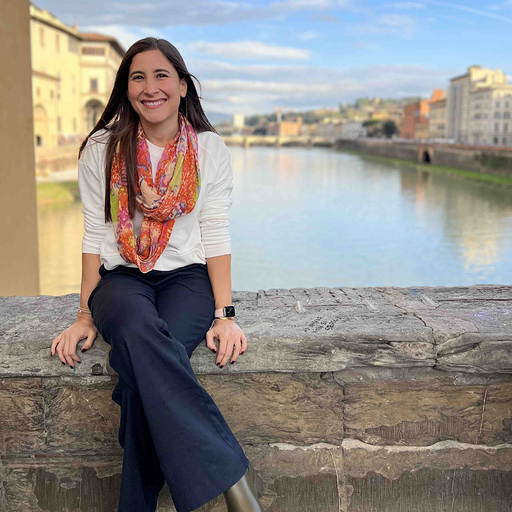Natural Remedies For Hearing Loss
Nature is the best healer! Learn more about types of hearing loss and natural remedies for hearing loss in our helpful article!

Hearing loss affects millions of Americans across all age groups. According to the National Institute of Health, one in eight people in the United States aged 12 years or older has hearing loss in both ears. About 2% of adults between 45 to 54 have disabling hearing loss, and the rate increases to 8.5% for adults aged 55 to 64.
Hearing loss presents unique challenges, particularly for kids who may face developmental and educational hurdles due to hearing impairment.
For adults who experience it as a hallmark of aging, it presents a challenge to adjust to a new lifestyle and may lead to social isolation. That’s why many individuals seek different ways to cope, treat or restore their hearing loss.
Can You Restore Hearing Loss?
Currently, fully reversing hearing loss is only possible in very limited cases. However, there are plenty of advancements in medical devices, such as state-of-the-art hearing aids and cochlear implants, as well as promising research and prevention strategies that may help address the challenges associated with hearing loss.
Other emerging areas of research are natural remedies for hearing loss. Although there are a few “quick fixes” for hearing loss, in this article, we’ll look at natural treatments you can explore.
Types of Hearing Loss
Before delving into natural remedies, it's essential to understand the different types of hearing loss. There are primarily three types:
- Conductive Hearing Loss occurs when sound waves cannot pass efficiently through the outer and middle ear, affecting sound transmission to the inner ear.
- Sensorineural Hearing Loss occurs due to damage to the hair cells in the inner ear or the auditory nerve. It is the most common type of permanent hearing loss.
- Mixed Hearing Loss combines elements of both conductive and sensorineural hearing loss, affecting both the middle and inner ear.
Common Causes of Hearing Loss
Hearing problems can arise from various factors, and identifying the cause can be crucial in determining the appropriate treatment.
Some common reasons for hearing loss include:
- Age: Age-related hearing loss, known as presbycusis, is a natural part of the aging process and typically affects the higher sound frequencies.
- Exposure to Loud Noises: Prolonged exposure to loud noises, such as heavy machinery, concerts, or headphones played at high volumes, can damage the sensitive structures of the inner ear and lead to hearing loss.
- Genetic Mutations: Genetic mutations can make individuals more susceptible to hearing loss. Although there is a genetic component to hearing loss, other risk factors include diabetes, cerebrovascular disease, smoking, poor cognitive function, and excessive alcohol intake.
- Infections: Infections of the ear, especially if left untreated, can cause temporary or permanent hearing loss.
- Medications: Some medications, such as certain antibiotics and chemotherapy drugs, may have a side effect of hearing loss.
- Head Trauma: Severe head injuries can damage the auditory nerves or the ear structures, resulting in hearing impairment.
What Are the Treatment Options for Hearing Loss?
Depending on the cause of your hearing loss, you’ll need to consult your doctor to determine a treatment plan.
Nothing can reverse aging or hearing loss entirely, and while hearing aids from reputable manufacturers offer a highly effective solution, some types of hearing loss may benefit from natural treatment methods.
Let's explore some natural remedies for hearing loss you can try at home.
What Are Natural Remedies For Hearing Loss?

While it's essential to consult a healthcare professional for hearing-related concerns, some advocates believe in natural remedies to support hearing health.
It's important to note that there is limited clinical research to support the efficacy of these treatments, and the FDA has not endorsed any natural remedies for improving hearing naturally. However, some of these remedies include:
- Daily Hearing Exercises: Some experts suggest performing regular hearing exercises to help strengthen the auditory system and improve listening skills. For example: reading aloud and practicing sound directionality.
- Vitamins and Supplements: Certain vitamins and minerals, such as vitamin B12, fish oil, magnesium, and zinc, may play a role in maintaining healthy hearing. While more research is needed, some studies suggest their potential benefits.
- Cleaning Your Ears: Keeping your ears clean and free from excessive earwax buildup is essential for optimal hearing, mainly since conductive hearing loss occurs due to obstructions and infections in the outer and middle ears. Bacterial infections can be treated with antibiotics.
- Healthy Diet: Many signs of hearing loss are directly correlated to chronic inflammation, which you can manage with a well-balanced, anti-inflammatory diet rich in folic acid, antioxidants and omega-3 fatty acids that may promote overall ear health. Include fresh fish, nuts, seeds, whole grains, fruits and vegetables into your diet.
- Physical Exercise: Regular physical activity improves blood circulation, which may benefit the tiny blood vessels in the inner ear.
- Ginger Tea: The anti-inflammatory properties of ginger could support ear health.
- Tea Tree Oil: Tea tree oil's antibacterial and antifungal properties have led some to use it to maintain ear hygiene.
- Ginkgo Biloba Extract: Ginkgo biloba is thought to improve blood circulation, which might have a positive impact on the auditory system. It is mostly used for people who experience sudden hearing loss.
- Cajeput Essential Oil: This oil is believed to have anti-inflammatory effects and has been used by some to support ear health.
Remember to approach these natural remedies with caution and under the guidance of a healthcare professional. Hearing loss is a complex condition, and what works for one individual may not be suitable for another. Additionally, if hearing loss is caused by a medical condition, it's essential to address the underlying issue rather than relying solely on natural remedies.
Conclusion
Hearing loss is a common condition that affects people of all ages, and while it can present challenges, there is hope for improvement.
Hearing aids are highly effective in restoring hearing abilities for many individuals, and maintaining a healthy lifestyle, including a balanced diet, regular exercise, and protecting the ears from loud noises, can be beneficial in achieving better hearing health.
Additionally, staying informed about the latest advancements in hearing health and seeking professional help for hearing concerns can improve your quality of life. If your hearing loss is irreversible, you can find support from resources for people who are hard of hearing and deaf communities.
Remember, hearing loss should never be a source of shame or embarrassment. With the right support and tools, you can continue leading a fulfilling life regardless of your hearing abilities.













.jpg)
